Is Peanut Butter Good for Me?
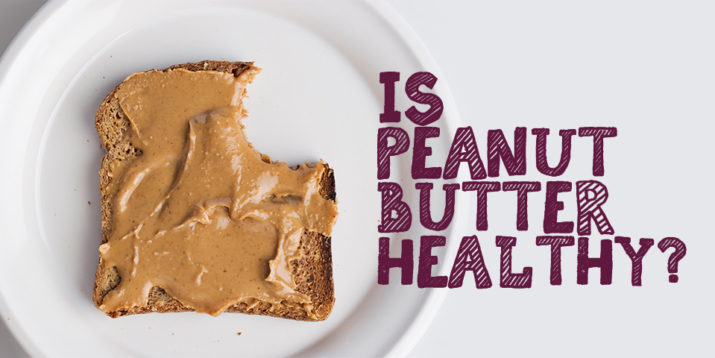
Creamy, salty, and sweet, peanut butter hits the taste trifecta.
Peanut butter (and other nut butters) is a delicious, nutritious food, no matter how old you are.
“We often think of peanut butter as kid food, but it’s incredibly healthy for adults, too,” says Karen Ansel, M.S., R.D.N., the author of Healing Superfoods for Anti-aging: Stay Younger, Live Longer.
“The beauty of peanut butter is that it’s super easy to use and, because it doesn’t require refrigeration, it travels anywhere,” she adds.
Is Peanut Butter Healthy?
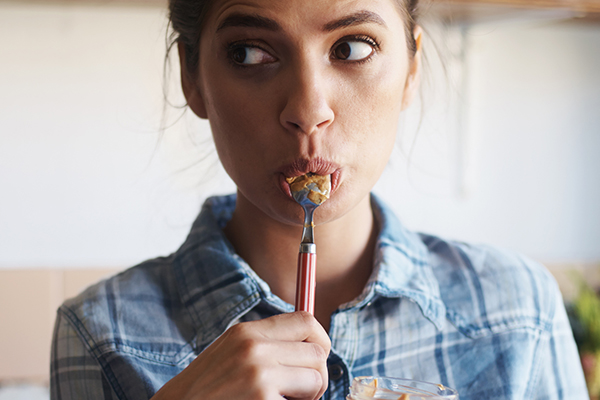
Peanut butter’s too delicious to be good for you, right? Wrong.
While it might not be the first food you’d think of as “healthy,” it’s actually nutrient-dense, and when eaten in moderation, can be part of a healthy diet, and provides a bounty of benefits for your body.
Protein
Need a boost in protein? A typical serving of two tablespoons of peanut butter delivers seven grams. “Peanut butter is a good way to work extra protein into a meal,” says Ansel.
Fat
Speaking of fat, peanut butter is a great source, delivering 16 grams per serving. If the double digits freak you out, breathe easy knowing it’s mostly the good kind — monounsaturated fatty acids (MUFAs).
“MUFAs can help reduce LDL cholesterol levels, when replacing more unhealthy fats (like saturated fats), while maintaining HDL cholesterol levels (the “good” kind),” says Paige Benté, M.S., R.D., C.S.S.D.
Worried by the saturated fat in your peanut butter? While this type of fat may be no bueno to eat in high quantities, the American Heart Association’s recommendations do allow for small amount of saturated fat — about 5 to 6 percent of your daily calories — 120 calories if your daily intake is a 2,000 calories, or 13 grams.
The good news is that a serving of peanut butter contains around 3 grams of saturated fat.
Calories
Peanut butter is calorically dense, clocking in at about 188 calories per 2 Tbsp., which is why moderation is recommended. Turns out you can get too much of even good things.
Vitamins and Minerals
“Peanut butter is packed with vitamin E, which helps keeps your immune system strong,” explains Ansel, who says two tablespoons provides 20 percent of your daily dose.
In addition to the energy provided by the balanced mix of macronutrients, a serving of peanut butter delivers nearly a third of your daily niacin (aka, B3), which your body needs to convert nutrients into energy.
Peanut butter also contains key minerals such as calcium, potassium, and magnesium.
Can Peanut Butter Help Me Lose Weight?
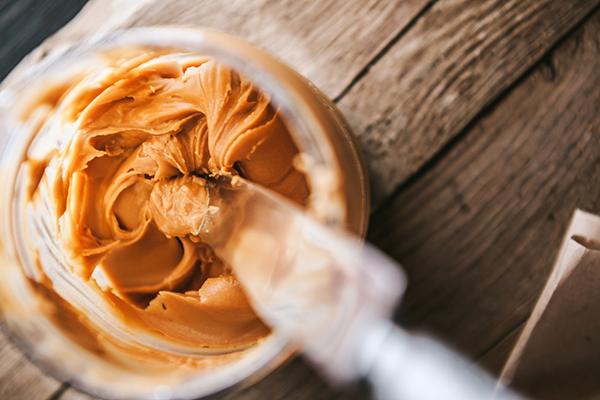
As yummy as peanut butter can be (even straight off the spoon), it may seem difficult to fathom so much deliciousness can help you to lose weight.
But protein coupled with a dose of fiber (almost two grams per serving — the same as half a small apple) means peanut butter can help keep hunger at bay.
And if you’re able to control yourself when you open a jar of peanut butter, you may experience fewer cravings for less healthy treats because it tastes like an indulgent treat.
Check out these healthy peanut butter snacks to satisfy any snack attack:
Chocolate Peanut Butter Ice Cream Sandwiches
Chocolate Peanut Butter Popsicles
Peanut Butter Best Practices
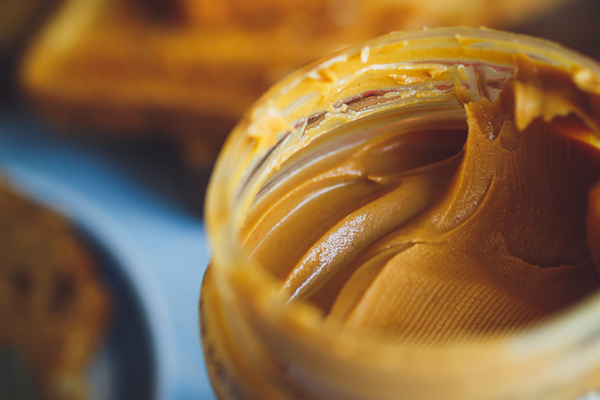
If you’re ready to add this powerhouse food to your diet, follow these tips:
- Less is more: When shopping for peanut butter (or any nut butter, for that matter), the fewer ingredients the better. “Turn the jar around and look for two things: peanuts and salt,” says Benté. “It doesn’t matter if it says ‘all-natural’ on the front. If there is added sugar or added oil, it’s out.”
- Make it yourself: Since you only need one ingredient (peanuts!), you can easily make your own spread at home. Simply toss shelled roasted peanuts into a food processor, puree, and store in the refrigerator.
- Don’t go nuts: While peanut butter offers a good boost of protein, don’t rely on it as a main source. “When combined with the macronutrients of other foods, peanut butter can help you stay fuller longer,” explains Benté. “However, at 188 calories per two tablespoons, there are other lower-calorie options offering much higher amounts of protein.”
- Try a substitute: If you lose all willpower when it comes to peanut butter, try a peanut powder. Peanut powders are made when roasted peanuts are stripped of their oils and the remaining nuts are ground into a fine powder. The result: Two tablespoons contains 45 calories, two grams of fat, five grams of protein, and five grams of carbohydrates. It makes a great addition to smoothies and oatmeal while reducing higher-fat calories.
- Contain yourself: Since moderation is key to peanut butter consumption, make your life easier by using Portion Fix containers. Use half of a yellow container (carbs) for peanut powder, one blue container (healthy fats) for 14 whole, dry roasted peanuts, and a teaspoon for peanut butter.
Peanut Butter Recipes That Spread the Love
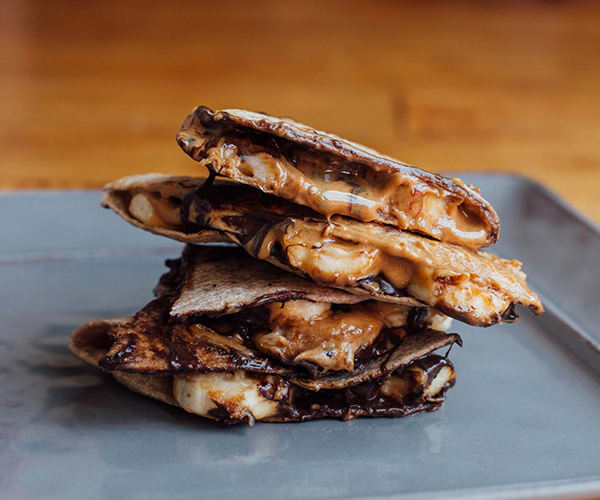
As a dip for fruits and veggies, a topper for whole wheat toast, or a mix-in with your protein-packed Greek yogurt, there are plenty of ways to enjoy peanut butter.
“But don’t forget about savory dishes, too,” says Benté. “The peanut butter we ate as children was often filled with sugar, so we associate peanut butter with sweet dishes. However, there are soups and sauces that can benefit from the peanut flavor.”
Ethiopian peanut stew or a Thai-inspired snack of a rice cake topped with peanut butter, lettuce, sliced cucumbers, and a drizzle of Sriracha are two of Benté’s savory favorites.
For a flavor-filled lunch, try Ansel’s recommended recipe: “Thin a few teaspoons of peanut butter with chicken broth. Add a dash of soy sauce and toss with cold noodles, sliced scallions, grated carrots, and snow peas.”
Check out these other sweet and savory peanut butter recipes:
Dark Chocolate Peanut Butter Fruit Dip
Peanut Butter Cinnamon Smoothie
Chocolate, Peanut Butter, and Banana Sweet Quesadilla
No-Bake Shakeology Breakfast Cookies
The Bottom Line
The peanut butter of your childhood is all grown-up: It’s a versatile source of healthy fats, protein, and vitamins and minerals when eaten in moderation as part of a healthy, balanced nutrition plan.
